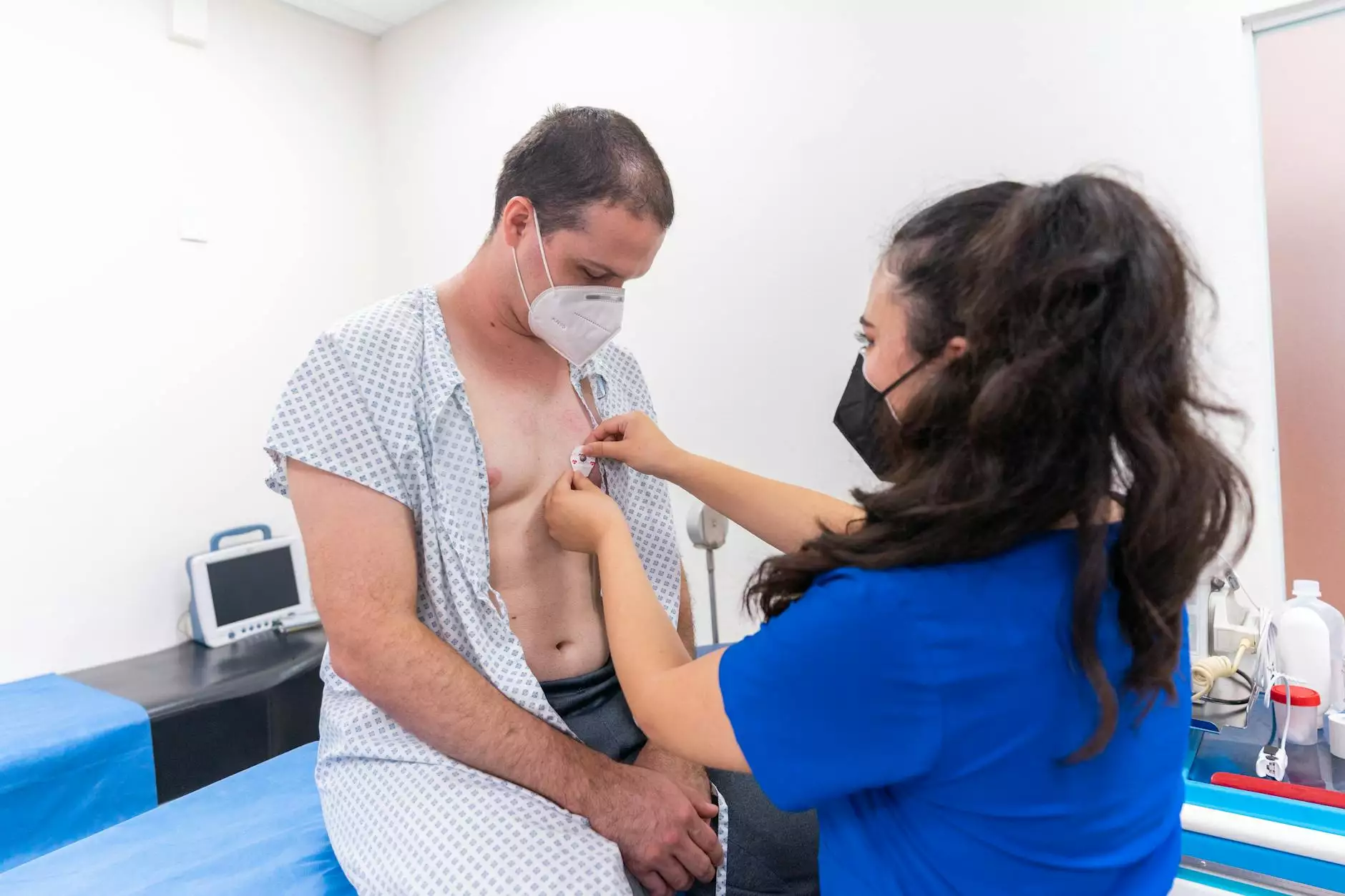Find a **Heart Specialist Near Me**: A Comprehensive Guide

The journey to better heart health begins with seeking the right professional. Finding a qualified heart specialist near me is essential for anyone needing specialized care for cardiovascular issues. This article provides you with all the necessary information on how to locate the best heart specialists, the types of services they offer, and vital tips for ensuring you receive the best possible care.
Understanding the Role of a Heart Specialist
A heart specialist, also known as a cardiologist, is a doctor who specializes in diagnosing and treating conditions related to the heart and blood vessels. Their expertise is crucial for anyone experiencing heart-related symptoms or risks. Here are some common reasons patients seek a heart specialist:
- Chest pain or discomfort
- Shortness of breath
- High blood pressure
- Abnormal heart rhythms (arrhythmias)
- Coronary artery disease
- Heart failure
Why It's Important to Find a Heart Specialist Near You
Proximity is vital when dealing with heart health due to the nature of cardiovascular conditions, which can escalate rapidly. Here are some benefits of finding a heart specialist near me:
- Immediate Access: Quick access to care during emergencies can save lives.
- Convenience: Regular check-ups and follow-ups become easier when the specialist is nearby.
- Community Knowledge: Local specialists often understand regional health trends and needs.
- Building Relationships: Proximity fosters a strong patient-doctor relationship, which is vital for ongoing care.
Steps to Find the Best Heart Specialist Near You
Finding the right heart specialist involves research and careful consideration. Here are the steps you should take:
1. Start with Referrals
Your primary care physician (PCP) is an excellent resource for referrals. They can recommend cardiologists based on your specific health needs. You can also ask family and friends if they have any recommendations.
2. Research Credentials and Experience
When you receive referrals, research each cardiologist’s credentials. Check their education, board certification, and any specialties they may have. Websites like mediglobus.com can provide insights into each doctor’s qualifications.
3. Check Reviews and Ratings
Online reviews from other patients can provide valuable insights into a cardiologist's practice. Look for reviews that mention:
- Quality of care
- Bedside manner
- Office staff behavior
- Wait times
4. Evaluate Hospital Affiliations
Cardiologists are often affiliated with hospitals. Research the hospitals’ reputations and quality of care. A well-regarded hospital can enhance your treatment experience.
5. Consider Gender and Communication Style
Comfort with your specialist is essential. Consider seeking a cardiologist of the same gender if it makes you more comfortable discussing personal health issues. Additionally, ensure they communicate clearly and respectfully.
Types of Heart Specialists You May Encounter
Cardiology is a broad field, and different specialists focus on various aspects of heart health. Here are the types of heart specialists you might find:
- General Cardiologists: They diagnose and treat many heart conditions and help manage risk factors.
- Interventional Cardiologists: These specialists perform non-surgical procedures to treat heart diseases, including angioplasty.
- Electrophysiologists: They focus on heart rhythm disorders and may implant pacemakers or defibrillators.
- Heart Failure Specialists: They manage patients with severe heart failure conditions.
- Pediatric Cardiologists: These experts specialize in congenital heart defects and heart diseases in children.
What to Expect During Your Visit to a Heart Specialist
Understanding what happens during your first visit to a heart specialist can help ease your anxiety. Here’s what you can generally expect:
- Medical History Review: Be prepared to provide a detailed medical history, including family history of heart disease, past health issues, and lifestyle habits.
- Physical Examination: The specialist will conduct a physical examination, focusing on your heart and lungs.
- Diagnostic Tests: You may undergo several tests, such as an EKG, echocardiogram, or stress test, to assess your heart’s function.
- Treatment Discussion: Based on the findings, the doctor will discuss your diagnosis, potential treatment options, and lifestyle modifications.
- Follow-up Plan: You will receive a follow-up plan, which may include additional tests, lifestyle changes, or scheduling another appointment.
Preventive Care and Lifestyle Changes for Heart Health
While finding a heart specialist near me is crucial, maintaining heart health through preventive care and lifestyle changes cannot be overlooked. Here are several ways to stay proactive about your heart health:
- Eat Heart-Healthy Foods: Incorporate fruits, vegetables, whole grains, lean proteins, and healthy fats into your diet.
- Exercise Regularly: Aim for at least 150 minutes of moderate aerobic activity weekly, such as brisk walking or cycling.
- Avoid Tobacco: If you smoke, quit. Avoiding tobacco can significantly reduce your risk of heart disease.
- Manage Stress: Practice stress reduction techniques like yoga, meditation, or deep breathing exercises.
- Regular Check-ups: Visit your primary care physician regularly for health screenings and early detection of risk factors.
Conclusion: Take Control of Your Heart Health Today
Your heart health is paramount, and finding a heart specialist near me is the first step toward better cardiovascular care. The resources and tips provided in this article equip you with the knowledge needed to seek out a qualified professional who can assist in your care journey. Don’t hesitate to reach out to a cardiologist, take proactive measures for your health, and make informed decisions that can lead to a healthier, longer life.
Additional Resources for Heart Health
Here are some valuable resources to further your knowledge about heart health and specialists:
- American Heart Association
- MediGlobus Health
- CDC Heart Disease Facts
- Mayo Clinic: Heart Disease Overview
Take action today—your heart deserves it!



